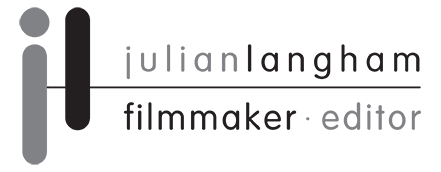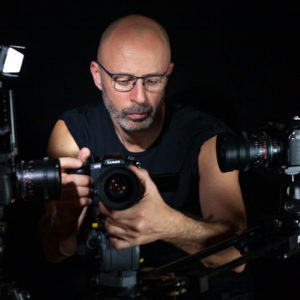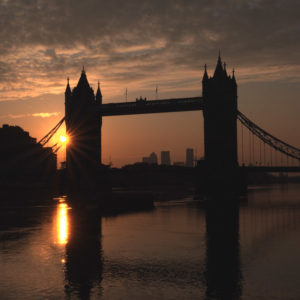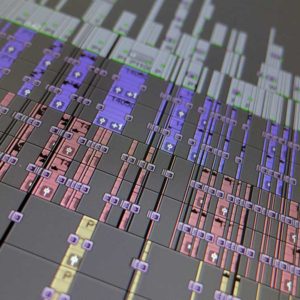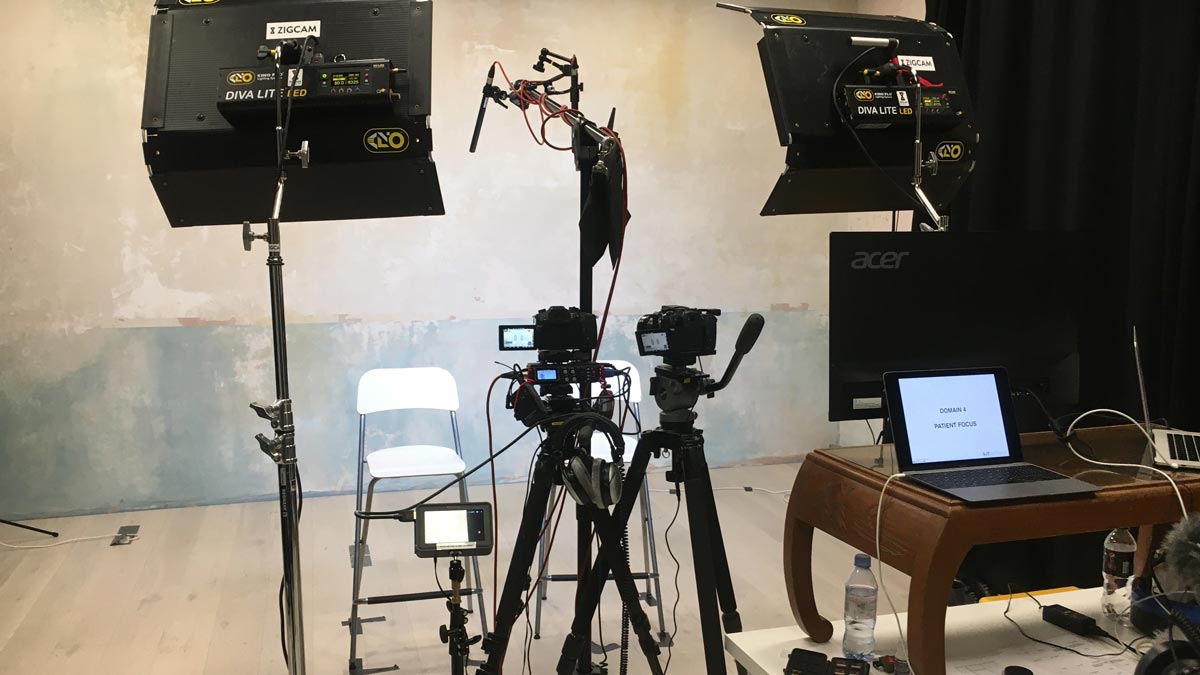
Based on many years of working as a freelancer, I have compiled a checklist of helpful videography tips for filming. This list of videography tips results from my own experiences of filming a wide range of content for various clients working in London, across the UK and in Europe.
Freelance videography
Working as a freelance videographer brings a variety of responsibilities depending on the scope of each project. I could be responsible for some or all of the creative aspects of any film or video production. So I am always adaptable to learning new skills as techniques evolve in different production areas.
Although I find working as a freelancer in videography to be an exciting and creatively fulfilling occupation, it can also be demanding and challenging in various ways.
As a videographer, I find that the expectation of most commissioning clients is that you can work quickly and efficiently on your own in any new environment. I would also be expected to capture the best quality footage for any given subject or action for any budgetary requirements that meet their brief. Hopefully, my list of videographer filming tips will be a helpful guide to help you negotiate through the variety of expectations from both experienced and inexperienced clients.
Consider your clients
Are you aware of your client’s level of experience and knowledge about any proposed project? It may be that your client is new to the world of film or video production. If you feel unsure about your client’s experience or knowledge level in this field, consider asking about their technical knowledge or researching their career background.
If your client has had no previous video production experience, you may need to offer advice or guidance on the practicality of the expectations of their project. If you are aware of this before any shoot, you can make allowances for different experience levels during the production process and filming. You might even need to offer them some videography tips.
Creative thinking time
Preferably, it is helpful to be commissioned for new projects well in advance of any filming dates as this allows me more creative thinking time about the project. I find it beneficial to formulate ideas and suggestions to pass on or discuss with my client to benefit the production. By thinking about each film or video production in detail and being dedicated to each individual commission, you will help to ensure the best outcome for everybody involved.
Packing kit
My own preference is to pack my filming gear the day before any filming day. For me, some dedicated quiet time helps me consider the requirements for each particular filming session, allowing me to select the most suitable items from my range of filming kit. Dedicated time to pack your filming gear also allows you to check and test everything is in total working order for filming. Cleaning, packing and suitably protecting your lenses and making sure your camera sensors are clean helps ensure you are fully prepared to set up as quickly as possible when you arrive at the filming location.
Consider potential challenges
When thinking about your project in advance of the shoot day, give full consideration to the precise details of the location, the environment and the subjects of your filming. Whether filming indoors or outdoors, always check the weather forecasts in advance. This knowledge may affect your decision on what kit is required for your filming session.
I’ve previously filmed at many challenging locations. Each such challenging location has required me to either transport my kit in different ways or to take more equipment for camera protection or to enable me to film safely whilst also considering everyone’s health and safety.
While planning safe methods of working with your kit and all involved, you should also consider what problems could arise. For example, when filming in a public environment, you need to manage the security for yourself and your kit. You may sometimes come across people in public places that present challenges to what you are working on.
The correct kit for each shoot
When filming with a DSLR type camera, I prefer to take an additional spare body. I always consider packing alternative power options for any kit that may need it (including your phone), a pack of data cards and a selection of lenses and audio equipment. For essential items, such as a radio microphone, I always pack a spare.
Each different commission and its filming environment will always require a different set of kit. By planning your filming project well in advance, you will have the opportunity to order or hire additional equipment that you may need in addition to your own kit. For some gigs, I wear an equipment waistcoat to pack everything I may need about my person.
Equipment kitbags
Working on my own as a videographer, I need to transport everything I will require for filming for most of my commissions. This can sometimes include multiple tripods, lights and cameras. Therefore, having a range of different sized kitbags is very helpful in managing a variety of kit requirements more efficiently.
I use a large Kata Beetle 282 backpack (which I use on most shoots), a Peli Air 1615 and a Think Tank tripod bag. Both the Peli Air 1615 and Think Tank tripod bag have a large capacity and are also on wheels helping me manage everything required. I also have separate cases for lighting cases and tripod bags. Sometimes, I need to travel super light and have a small waterproof rucksack for everything I need on these occasions.
Plan your travel
My own personal preference is to arrive early for each filming assignment as this allows ample setting up time and removes the potential stress of rushed starts. Being based in and working across London, getting transport to any City destination to arrive on time with my filming kit always needs to be planned in advance.
Whether driving, using public transport or travelling by taxi, London travel can always be subject to a wide range of challenging delays. It is always helpful to check the expected travel time on Google for the method of travel and time of day. I also review travel apps and always have a plan B in case plan A does not work out for the best.
Taking care of yourself
Your most valuable assets, working as a freelance videographer, is to keep healthy and happy. Filming days can sometimes be intense and stressful. You need to be aware that your clients may have a lot on their minds, so you must consider your own welfare.
Make sure, if possible, that you feel rested before a filming day. It is important to manage the amount and weight of all filming kit, how it can be safely transported and how it’s security can be safely managed whilst there.
It’s useful to include a bottle of water and some energy bars if you need a boost or can’t find a place for lunch. Sometimes it may be necessary to compromise on your client’s and associates expectations or challenges in a way that does not adversely affect you and your work.
Location recce
It can be beneficial to go for a site recce in advance, especially for more complex projects or when you have any reservations about a new filming commission. Visiting the site before a filming day may mean meeting some people, such as a theatre or AV technician or members of a production team who are creatively involved in what you will be filming there.
A walk around any potential filming site can also help you to identify the best locations for filming positions. This also enables you to locate electrical power sources; determine the electrical power available; check the lighting conditions; assess potential location variables, and evaluate site safety.
A location recce can also help you agree on a realistic timetable with your client and whether you will need to hire in any additional kit (e.g. additional lighting equipment). I also find it helpful to take a camera to a site recce to check which lenses and camera angles might work best for filming.
Rehearsal filming
For some complicated ‘live’ performances or theatrical productions, it is beneficial to first film a dress rehearsal. This enables you to become familiar with all aspects of the show before filming ‘live’ performances. These include the range of movements of each participant, the timings of any specific actions and how the lighting might change throughout.
This information can be used for feedback to the other creatives involved (who may not have experience in producing a film or video) so that the production can be best optimised for any filming.
If you are planning on filming with multiple cameras, then watching a rehearsal can also help to finely adjust each camera position and select the best lens for each particular camera position. Recording a performance will enable you to review it and write a camera shot list for the filming of the actual performance.
Data protection
For camera recordings, it is always beneficial to use a reliable brand of the fastest cards available. SanDisk cards come with a lifetime guarantee, and this has been helpful to me when a card has developed an occasional fault. Another advantage of purchasing the fastest cards available is that they have remained useable over a longer timeframe with different camera upgrades and filming with higher data rates.
My main cameras have two SD card slots, so I record to both SSD card simultaneously when realistic to do so. My end of filming day routine workflow ensures I copy each day’s filming onto either SSDs or my edit station RAID 5 drives and then create a clone of that day’s filming on another drive. This means I then have two copies of each day’s media before I reformat the SD cards.
I hope you have found this list of videography tips for filming helpful. Do get in touch if you would like any help or advice with your own project. If you have any videography tips of your own do let me know.
More tips for videographers
You might find these related blog articles which contain many more videography tips of interest:
